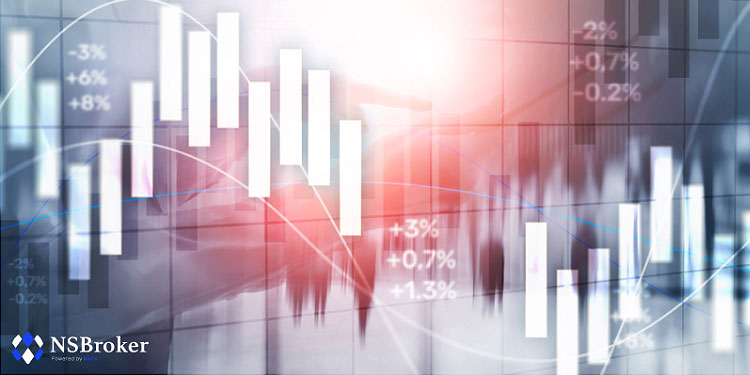It’s as simple as it sounds: a forex trader is someone who trades currencies on the foreign exchange market. This applies to anyone from professional traders hired by financial firms to amateurs who learn to trade on their own for their personal benefit.
Successful trading requires following closely the changes in exchange rates and being able to interpret them to make decisions regarding what trades should be placed. We are going to dig a little deeper into what it takes to be a forex trader to help you get prepared for this exciting journey.
The main task of any forex trader is trying to profit off of trading foreign currencies. The nature of all currencies dictates constant fluctuations in their prices that traders try to foresee in order to place a profitable trade, whether it’s buying or selling.
It might seem rather simple, which it is to an extent, but it is also quite risky. Naturally, the prospect of a big profit brings on considerable risks of loss. However, this sounds, depending on your temper you might want to consider other forms of trading that better fit your level of patience, confidence, etc.
How the Market Works
The forex market is the world’s biggest and busiest financial market. Over 5 trillion dollars are traded daily. The majority of the currency is actually traded through this completely decentralized market. There are a few trading centers all over the world that are located in London, New York, and Tokyo. This allows the market to be open 24 hours a day, 5 days a week.
One of the first things you will notice on your forex trading charts are the three-letter abbreviations. Each of them represents a currency: USD is the US dollar, CAD is the Canadian dollar, and so on. All trades are grouped into currency pairs, like USD/CAD. Some of the most popular currencies on the market are USD, CAD, NZD, EUR, and JPY (the Japanese Yen).
Let’s check out this example to better understand what exactly happens once you start trading. For example, a euro’s price is 1.212, which means that you need 1.212 US dollars to buy 1 euro. Let’s say, you buy 1000 euros for $1212 and then the price rises to 1.313. You can then sell your euros for $1313. You end up with a profit of $101.
How Do You Become a Forex Trader?
There are a few ways you can trade foreign currencies for profit: on an exchange regulated by CFTC, on an exchange regulated by the US SEC, and on the off-market exchange. Once you decide where you want to trade, you will have to open a brokerage account. Nowadays there are dozens of decent options available. Visit https://nsbroker.com/ to see what a good brokerage offer looks like.
The majority of stockbrokers also offer forex trading. If you already have an account, you can probably start trading forex on the same platform. Most likely all you will have to do is fill out a short online application. If you are opening a new account, you will have to start with making a small deposit first.
Some brokers let you open an account with as little as 100 of your currency. They may, however, recommend that you deposit more than that in order to amplify the potential profit of your first trades.
Once you’ve opened your account, you begin trading by selecting the currencies you want to trade. Currencies on the forex always come in pairs.
While the value of one currency increases, the value of another one falls. If you’re only starting your trading journey, the main advice anyone will give you is to start with the popular currencies, like USD, CAD, EUR, etc. These currencies have the most price fluctuations and the smallest spreads (what the broker charges for each trade).
What Are the Risks?
Currency trades are severely leveraged, most often by about 50 to 1. The number can be even higher depending on the country. This means that you can obtain considerable amounts of currency for much less than what it is actually worth. This undoubtedly sounds very appealing, especially for a newbie looking to go into the market with rather small capital. It’s worth remembering though that while leverage augments potential profit, it does the same with the risk of losses. This can lead to losing huge sums, even if you deposit no more than the initial $100. You have to be attentive and only use leverage when you are fully confident in the trade you are placing.
Another thing to look out for is the currencies’ quotes. Keep in mind that quoting protocol is not universal, which means that there are no regulations for them. Therefore, you have to be aware of the quotes’ specific meaning, whenever you are dealing with one currency or another. Neglecting this can cost you quite a lot.
And last but not least, watch out for the scams. Whether you are going through with a regulated or off-market platform, be careful and attentive. Look out for suspicious details, like promises of instant profit, and so on.
Practice First
One of the best things you can do before actually going into the market is practicing on a demo account. Most platforms nowadays offer demo accounts that give you a good glimpse of what the actual market looks and feels like. You can try placing “empty” trades to get a hold of what’s happening on every chart, and what effect each of your steps has on your trades. Once you feel more confident, get a real account.
Listen to your broker’s advice, don’t lose your head, and don’t stop learning. These are the keys to building a solid foundation for your forex trading experience.
